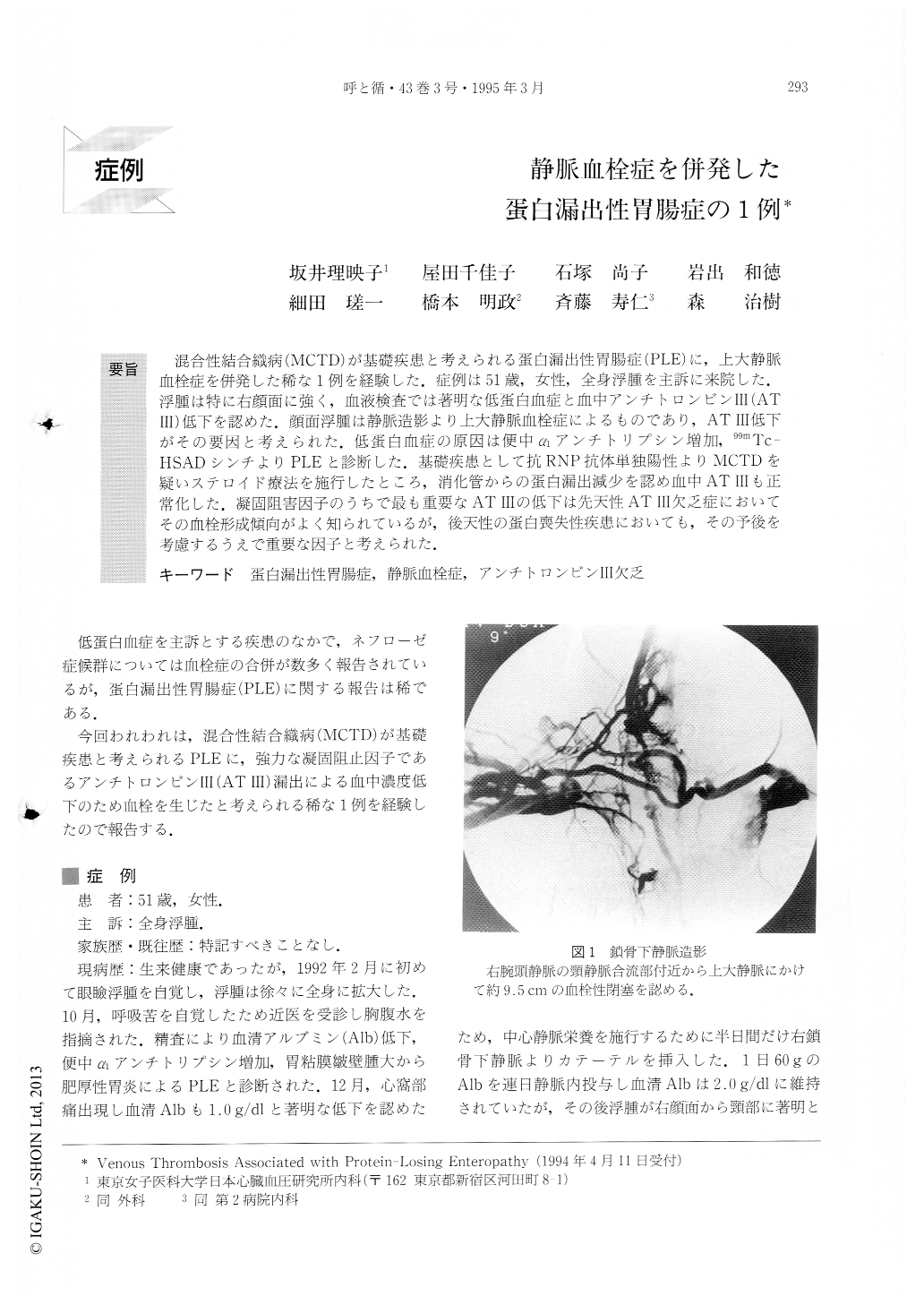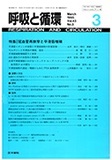Japanese
English
- 有料閲覧
- Abstract 文献概要
- 1ページ目 Look Inside
混合性結合織病(MCTD)が基礎疾患と考えられる蛋白漏出性胃腸症(PLE)に,上大静脈血栓症を併発した稀な1例を経験した.症例は51歳,女性,全身浮腫を主訴に来院した.浮腫は特に右顔面に強く,血液検査では著明な低蛋白血症と血中アンチトロンビンIII(ATIII)低下を認めた.顔面浮腫は静脈造影より上大静脈血栓症によるものであり,AT III低下がその要因と考えられた.低蛋白血症の原因は便中α1アンチトリプシン増加,99mTc—HSADシンチよりPLEと診断した.基礎疾患として抗RNP抗体単独陽性よりMCTDを疑いステロイド療法を施行したところ,消化管からの蛋白漏出減少を認め血中AT IIIも正常化した.凝固阻害因子のうちで最も重要なAT IIIの低下は先天性AT III欠乏症においてその血栓形成傾向がよく知られているが,後天性の蛋白喪失性疾患においても,その予後を考慮するうえで重要な因子と考えられた.
A patient with protein-losing enteropathy (PLE) associated with mixed connective tissue disease (MCTD), who developed superior vena cava thrombo-sis is described. A 51-year-old woman was admitted to our hospital because of generalized edema. She showed strong facial edema on the right side. Serum albumin level and antithrombin III (AT III) activities were markedly decreased. Venous angiography showed a thrombus of the superior vena cava. Neither liver dysfunction nor nephrotic syndrome was present. After an elevation of 24-hour fecal α1 anti-trypsin clearance, and abdominal scintigraphy. following intravenous injection of 99mTc-human serum albumin D (HSAD), radioactivity in the intestine was observed, we confirmed that PLE was the main etiology of her hypo-proteinemia. Only anti-Ul ribonucleoprotein (RNP) antibody was positive, although the titer was low. The case was suspected MCTD and corticosteroid pulse therapy followed by the oral administration of 20mg prednisolone (PSL) a day was performed. Within one week, there was a rise in the serum albumin level and AT III activity. Finally 5 mg oral administration of PSL alone was enough to maintain normal serum albu-min level and AT III activity. Abdominal scintigraphy of 99mTc-I-ISAD clearly demonstrated a decrease in radioactivity.
Severe hypoproteinemia due to leakage of plasma proteins into the intestinal lumen may be related to a decrease in the blood levels of anticoagulation factors and the formation of thrombi in the vessels. Decreased AT III activity is well known for its tendency to be accompanied by thrombi formation in hereditary cases of AT III deficiency. AT III is the most important anticoagulation factor, and we should consider throm-bosis in its relation to other acquired protein-losing diseases.

Copyright © 1995, Igaku-Shoin Ltd. All rights reserved.


